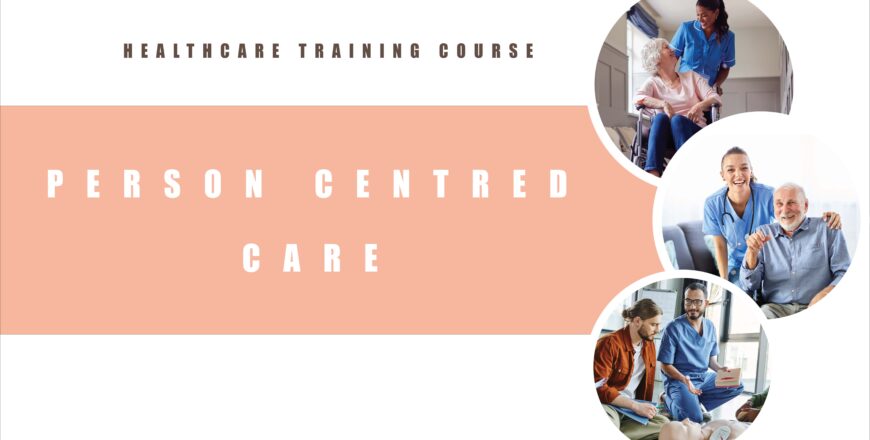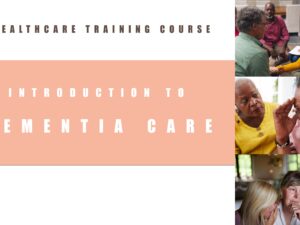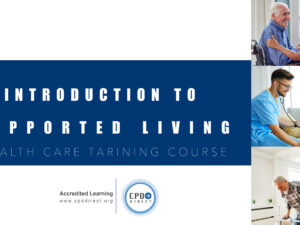- Description
- Curriculum
- FAQ
- Grade
Welcome to our Person Centred Care Training Course designed to empower healthcare professionals with the knowledge and skills needed to provide compassionate and individualised care. In the dynamic landscape of healthcare, person-centred care has emerged as a crucial approach that prioritises the unique needs and preferences of each patient. This training program is meticulously crafted to equip participants with a deep understanding of person-centred care principles and practical tools to implement them effectively.
Course Overview
This comprehensive training course is tailored for healthcare professionals in the United Kingdom who seek to enhance their ability to deliver patient-focused care. The course covers fundamental concepts, practical strategies, and real-world scenarios to help participants integrate person-centred care into their daily practices.
Course Objectives
- Understand the principles and philosophy of person-centred care.
- Develop effective communication skills for building rapport with patients.
- Enhance empathy and cultural competence in healthcare interactions.
- Implement personalised care plans that align with individual patient needs.
- Foster collaborative partnerships with patients, families, and multidisciplinary teams.
- Evaluate and improve person-centred care practices in diverse healthcare settings.
Enrol in our Person Centred Care Training Course and embark on a journey to transform healthcare delivery through compassionate and individualised care practices. Together, let’s make a positive impact on the well-being of patients across the United Kingdom.
Assessment and Certification: The course will include assessments such as quizzes and case studies, to evaluate learners’ understanding of the course content. Upon successful completion of the course, learners will receive a certificate of completion, which can be used as evidence of their training in Person centred care.
-
1Introduction to Person Centred CareText lesson
In the ever-evolving landscape of healthcare, the concept of person-centred care has emerged as a paradigm shift that places the individual at the heart of healthcare delivery.
-
2Philosophical Underpinnings and PrinciplesText lesson
Person centred care is grounded in a rich tapestry of philosophical underpinnings that shape its approach to healthcare.
-
3Legal and Ethical ConsiderationsText lesson
Legal and ethical considerations are integral components of person centred care, ensuring that healthcare practices prioritise the rights, autonomy, and well-being of individuals.
-
4Integrating Person Centred Care in Healthcare SystemsText lesson
The integration of person centred care into healthcare systems is a transformative process that requires a holistic approach, involving organisational culture, policies, and practices.
-
5Module 1 QUIZ1 questionsFoundations of Person-Centred Care.
-
6Effective Verbal and Non-Verbal CommunicationText lesson
Communication is the cornerstone of person centred care, influencing the quality of relationships between healthcare providers and individuals.
-
7Active Listening and EmpathyText lesson
Effective communication in person-centred care involves not only conveying information but also actively listening and demonstrating empathy. Lesson 2 focuses on two vital components: Active Listening and Empathy, which are integral to understanding individual needs, building trust, and fostering collaborative relationships.
-
8Overcoming Communication BarriersText lesson
Effective communication in person-centred care can be hindered by various barriers. Lesson 3 focuses on strategies to overcome these barriers, ensuring that healthcare providers can navigate challenges and maintain meaningful and respectful interactions with individuals.
-
9Digital Communication in HealthcareText lesson
Digital communication has become an integral part of healthcare, offering opportunities to enhance person-centred care through various channels. Lesson 4 explores the intricacies of digital communication in healthcare, examining its benefits, challenges, and strategies for ensuring effective and patient-centred interactions.
-
10Understanding Cultural DiversityText lesson
Cultural competence is a cornerstone of person-centred care, requiring healthcare providers to understand and appreciate the diverse cultural backgrounds of individuals. Lesson 1 delves into the importance of understanding cultural diversity, exploring the impact of culture on healthcare practices, beliefs, and communication.
-
11Adapting Care to Cultural PreferencesText lesson
Cultural competence in healthcare goes beyond acknowledging diversity; it involves actively adapting care to align with the cultural preferences of individuals. Lesson 2 explores the significance of adapting care to cultural preferences, emphasising the role of healthcare providers in creating a supportive and inclusive environment.
-
12Addressing Health DisparitiesText lesson
Addressing health disparities is a critical component of cultural competence in healthcare. Lesson 3 explores the various dimensions of health disparities, the factors contributing to these disparities, and strategies to promote equitable and inclusive healthcare.
-
13Promoting Inclusivity in Healthcare PracticesText lesson
Promoting inclusivity in healthcare practices is fundamental to providing person-centred care and addressing the diverse needs of individuals. Lesson 4 explores strategies and principles for fostering inclusivity in healthcare settings, creating environments that respect and embrace the unique attributes of every patient.
-
14Conducting Comprehensive Patient AssessmentsText lesson
Conducting comprehensive patient assessments is a foundational step in developing personalised care plans. This lesson explores the importance of thorough assessments, the components involved, and the various categories that healthcare professionals consider when gathering essential information about the patient.
-
15Developing Individualised Care PlansText lesson
Developing individualized care plans is a critical aspect of personalized healthcare, tailoring interventions to meet the unique needs, preferences, and circumstances of each patient. This lesson explores the key components of creating individualized care plans, the collaborative nature of the process, and the categories that guide the development of personalized care.
-
16Involving Patients in Decision-MakingText lesson
Involving patients in decision-making is a crucial aspect of personalized care planning, promoting patient autonomy, engagement, and satisfaction. This lesson explores the principles and strategies for patient involvement in decision-making, emphasizing shared decision-making and considering various categories that guide this collaborative process.
-
17Monitoring and Adjusting Care PlansText lesson
Monitoring and adjusting care plans are essential components of personalized healthcare, ensuring that interventions align with the evolving needs, preferences, and circumstances of each patient. This lesson explores the principles, strategies, and categories guiding the continuous evaluation and refinement of care plans.
-
18Building Collaborative RelationshipsText lesson
Building collaborative relationships is fundamental to person-centred care, emphasizing the importance of teamwork, communication, and shared decision-making. This lesson explores the principles, strategies, and categories guiding the development of collaborative relationships in healthcare settings.
-
19Team-Based Care ApproachesText lesson
Team-based care approaches are integral to delivering comprehensive and coordinated healthcare, emphasising the collective efforts of diverse healthcare professionals to meet the unique needs of each patient. This lesson explores the principles, strategies, and categories that guide the implementation of team-based care in person-centred healthcare settings.
-
20Patient and Family EngagementText lesson
Patient and family engagement is a cornerstone of person-centred care, recognising the importance of involving patients and their families in the healthcare decision-making process. This lesson explores the principles, strategies, and categories that guide the meaningful engagement of patients and their families in their care.
-
21Inter-professional CollaborationText lesson
Inter professional collaboration is a crucial aspect of person-centred care, emphasising the coordinated efforts of healthcare professionals from diverse disciplines to optimise patient outcomes. This lesson explores the principles, strategies, and categories that guide effective inter professional collaboration in healthcare settings.
-
22Assessing Person Centred Care OutcomesText lesson
Evaluating person-centred care outcomes is a critical component of ensuring the effectiveness of healthcare practices and continuous improvement. This lesson explores the principles, strategies, and categories involved in assessing person-centred care outcomes.
-
23Feedback and Reflection in PracticeText lesson
Feedback and reflection in practice are essential components of a continuous improvement cycle in person-centred care. This lesson explores the principles, strategies, and categories involved in providing and receiving feedback and fostering reflective practices.
-
24Implementing Quality Improvement MeasuresText lesson
Implementing quality improvement measures is crucial for enhancing person-centred care delivery. This lesson explores the principles, strategies, and categories involved in implementing quality improvement measures, ensuring continuous enhancement of healthcare practices.
-
25Sustaining Person Centred Care PracticesText lesson
Sustaining person centred care practices is a critical aspect of ensuring long-term success and positive impacts on patient outcomes. This lesson explores the principles, strategies, and categories involved in sustaining person-centred care practices over time.



